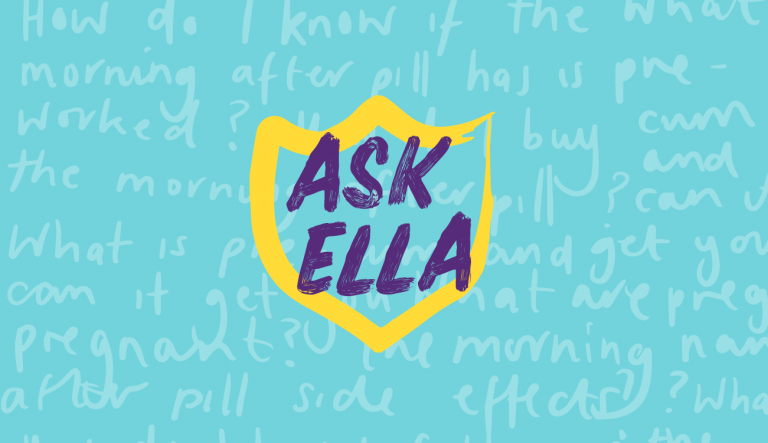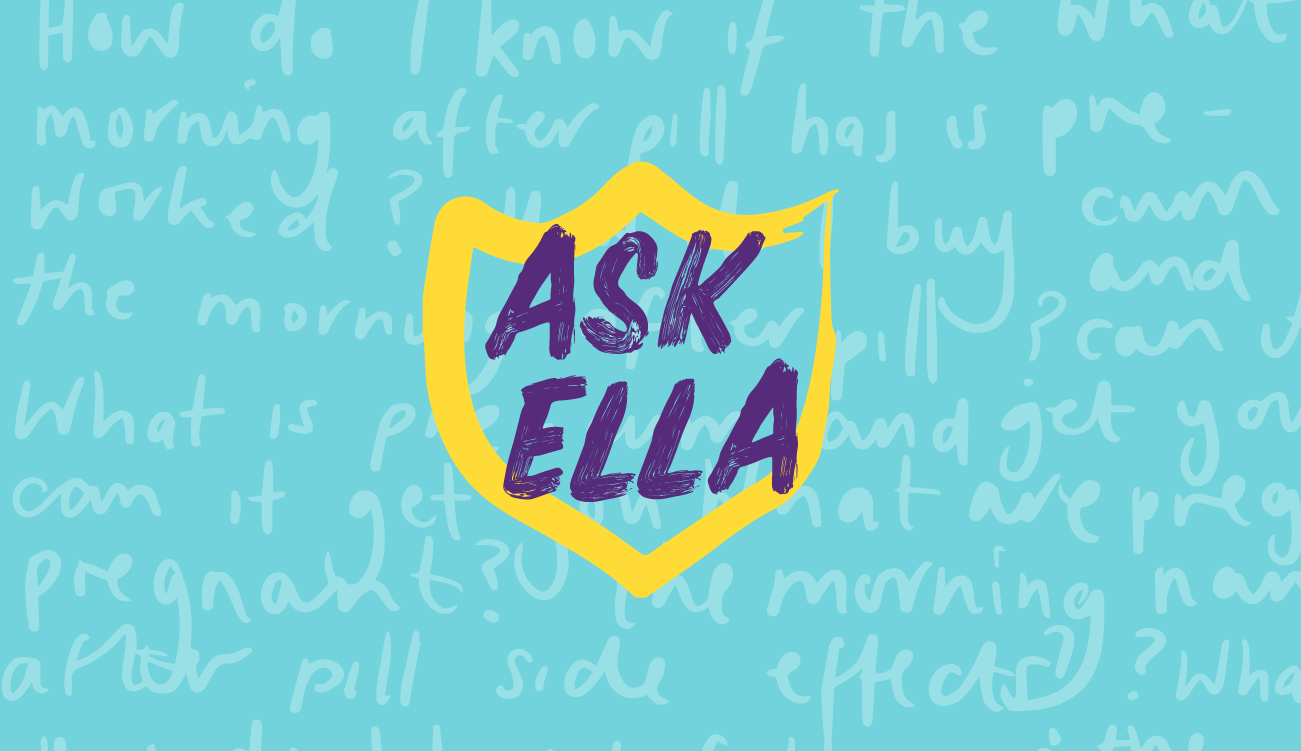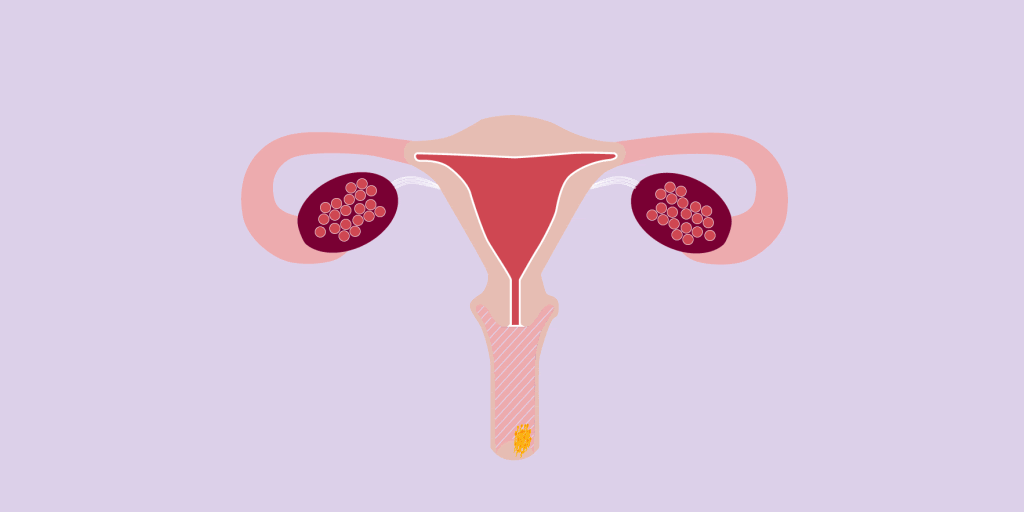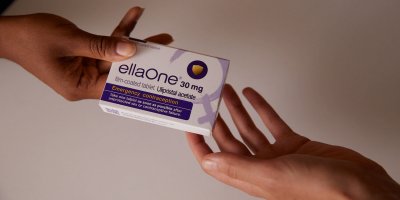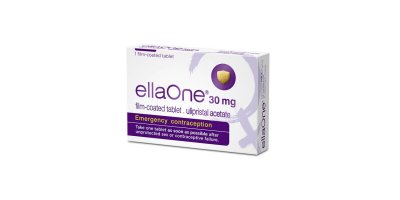One of our audiences most googled questions is ‘‘will the morning after pill work if I have ovulated?’
There’s a short answer and a long answer. ellaOne, the UK’s preferred morning after pill*, will do our best to explain how ovulation can affect the morning after pill, with help from pharmacist Deborah Evans**.
The short answer is: no. All morning after pills work by delaying ovulation, so if you have ovulated in the last 24 hours then it won’t be effective.
Why do we need the long answer?
Ovulation is complicated. It’s very difficult to know with 100% certainty that you have actually ovulated. Say you had unprotected sex when you thought you were ovulating, so you didn’t take emergency contraception thinking that it wouldn’t make any difference.
If your menstrual maths were out by one day – or even 12 hours – then emergency contraception could make the difference between having an unplanned pregnancy or not.
How do I know if I have ovulated?
Ovulation is the name given to when you release a mature egg (also called an ova). The egg can survive for 12 to 24 hours. If it isn’t fertilised by a sperm in this time, the egg dissolves. Ovulation takes place in between your periods, but the exact day can differ from cycle to cycle and from person to person.
If you track your menstrual cycle, using a fertility app or menstrual maths, then you might have an idea of roughly when you are ovulating, but pinpointing the exact moment is tricky. That can be the flaw with using ‘fertility tracking’ as a method of contraception.
“Ovulation is very difficult to predict,” Deborah Evans explains, “Many women, even those who consider themselves very regular, will not ovulate on day 14. This, together with the fact that women have no way of accurately predicting when they ovulate, means that knowing when we are most fertile is very difficult.
“The unpredictability of ovulation and the length of time a sperm can be viable to fertilise an egg for (sperm can survive in the female reproductive tract for up to 5 days) means that a woman can get pregnant at any time throughout her cycle,” she continues.
Even if you’re a top menstrual mathematician, ovulation can be influenced by external factors leading it to change month by month. It can be affected by all kinds of things like your diet, your stress levels or travelling to different time zones. There’s no telltale sign that you are ovulating or have already ovulated.
Some people, often when trying to conceive a child, use ovulation sticks which you can pee on to measure your levels of lutenising hormone (LH) to predict when you’re about to ovulate – LH gets very high the day or two before ovulation.
“If a woman does not want to be pregnant after having unprotected sex or a contraceptive failure, then emergency contraception is recommended, and the sooner after the ‘event’ the better,” Deborh says, “in other words: if in any doubt at all, seek emergency contraception.”
Remember you can get pregnant at any time of your menstrual cycle – even when you’re on your period – so it’s not just around ovulation that you need to use contraception.
Will the Morning After Pill work if I have ovulated?
“If ovulation has already occurred then the morning after pill won’t be effective,” says Deborah, “but as I’ve said, it’s really difficult to know whether it has happened or not.”
“The most effective method of emergency contraception is the copper intrauterine device (Cu-IUD) or ‘copper coil’ which can be inserted up to 5 days afterwards3,” she continues. “If a woman chooses the coil, then she may also be advised to take the morning after pill as soon as possible, in case something goes wrong with her appointment or she changes her mind.3” The copper coil is the only emergency contraceptive that can still be effective if you have ovulated.
“If your period is more than 7 days late or is unusually light after taking the morning after pill, then a pregnancy test should be done. If it is positive, then you should speak to a doctor or other pregnancy advisory service at the earliest opportunity,” Deborah adds.
The morning after pill will not work during or after ovulation, because it only works by delaying ovulation. It can be really hard to pinpoint the exact point of ovulation as it can vary from person to person and from cycle to cycle. ellaOne® is 2.5x more effective than levonorgestrel when taken ASAP (within 24 hours).
*Based on sales data. Verify at ellaone.co.uk/verify
**the healthcare professionals in this article do not endorse any products or brands.
ellaOne® 30mg film-coated tablet contains ulipristal acetate and is indicated for emergency contraception within 120 hours (5 days) of unprotected sex or contraceptive failure. Always read the label.
If you’ve taken the morning after pill, and you feel comfortable sharing your story, help us end the stigma which surrounds this topic.
